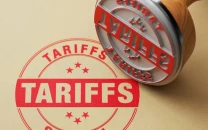OMCs warn fuel supply at risk over unresolved policy
Industry cites Rs156b investments; urges OGRA, govt to work together to fix pricing, and regulatory gaps

Oil Marketing Companies (OMCs) have once again raised concerns over challenges being faced by the petroleum sector, urging the government to resolve long-standing issues that directly impact supply chain sustainability and the financial health of the industry.
In a letter addressed to the government and the Oil and Gas Regulatory Authority (OGRA), Oil Marketing Association of Pakistan (OMAP) Chairman Tariq Wazir Ali highlighted that despite repeated engagements with concerned authorities, several matters remain unresolved, creating uncertainty for companies operating in the sector.
The communication reflects the growing frustration within the OMC community over delays in decision-making and the absence of a clear policy direction. The letter points out that issues related to pricing mechanisms, margins, taxation complexities, and regulatory processes continue to weigh heavily on the sector's overall performance. They argue that without timely government intervention, the sustainability of fuel supply to the public could face challenges, particularly at a time when the economy is struggling and energy affordability has become a national concern.
The letter further stated that the sector has remained patient despite increasing financial pressures. "The companies are performing a critical role in ensuring uninterrupted fuel availability, but we cannot sustain operations indefinitely under the current policy uncertainties. There has to be clarity and fairness in the regulatory framework if the industry is to serve both the government and the consumers effectively," it said.
Ali also highlighted that companies have already made massive investments in the sector. "Investments have already been made, including Rs81 billion in storage facilities, which make up nearly half of the country's total capacity, and Rs75 billion in retail networks and other assets. These investments have made the market more competitive and consumer-friendly," he added.
He stressed that regulatory bodies must acknowledge the limitations of existing mechanisms and encourage collaboration to ensure a stable supply chain. According to the OMAP chairman, the current environment makes it difficult for OMCs to operate profitably, while being expected to maintain nationwide availability of petroleum products without compromise. "This dual pressure is not sustainable in the long run, and we urge the government to address our concerns without further delay," he said.
Responding to the concerns raised in the letter, an OGRA spokesperson clarified the organisation's position. "OGRA actively reviews and resolves industry issues within its purview. Moreover, there are numerous issues which pertain to policy, and those fall under the domain of the federal government and not under OGRA's jurisdiction," the spokesperson explained.
This clarification underlines the distinction between regulatory functions and policy-making responsibilities, a difference that often creates misunderstanding within the industry. While OGRA has the mandate to ensure compliance, fair play, and protection of consumer interests, broader matters like pricing policies, taxation regimes, and structural reforms lie with the federal government.
Ali, however, has urged both the regulator and the government to work in harmony, stressing that a disjointed approach leads to delays and confusion that directly impact market stability.
Industry stakeholders and observers believe the petroleum sector's challenges mirror the broader governance and policy coordination issues facing the economy. Unless there is a concerted effort, OMCs fear that not only their operational capacity but also the reliability of fuel supplies could be compromised. With the stakes so high, the industry's call for immediate attention from policymakers is likely to gain momentum in the days to come, they added.





















COMMENTS
Comments are moderated and generally will be posted if they are on-topic and not abusive.
For more information, please see our Comments FAQ